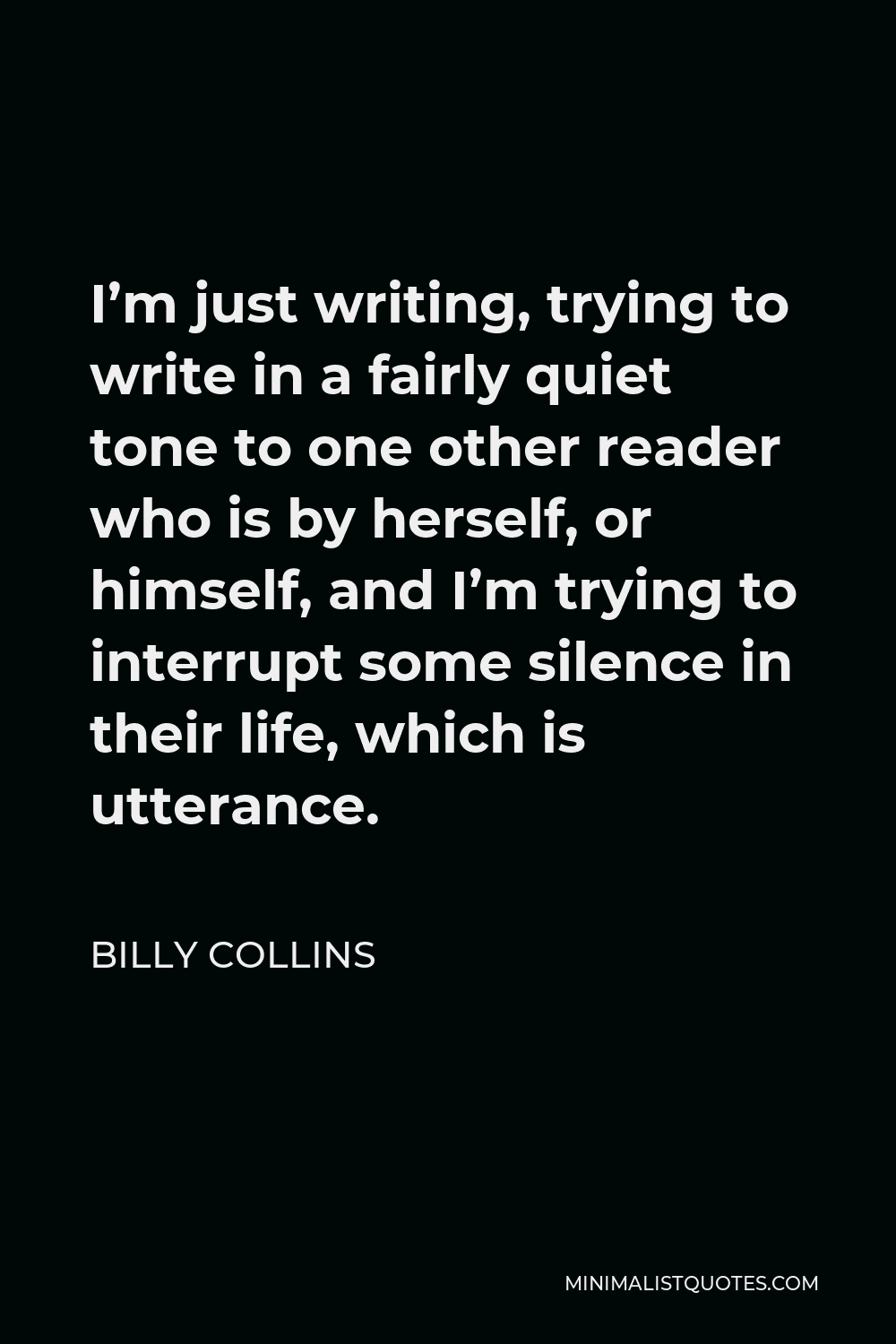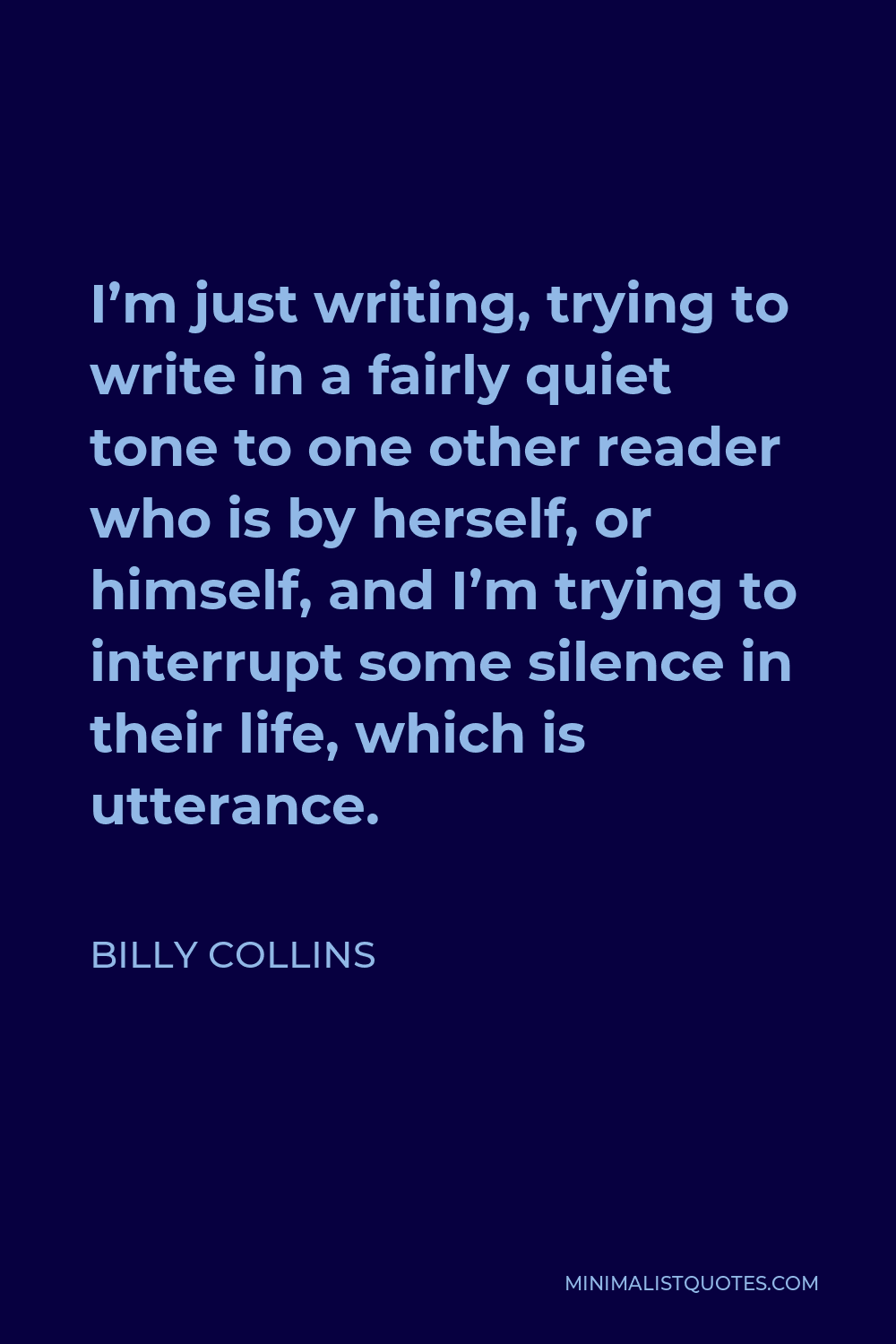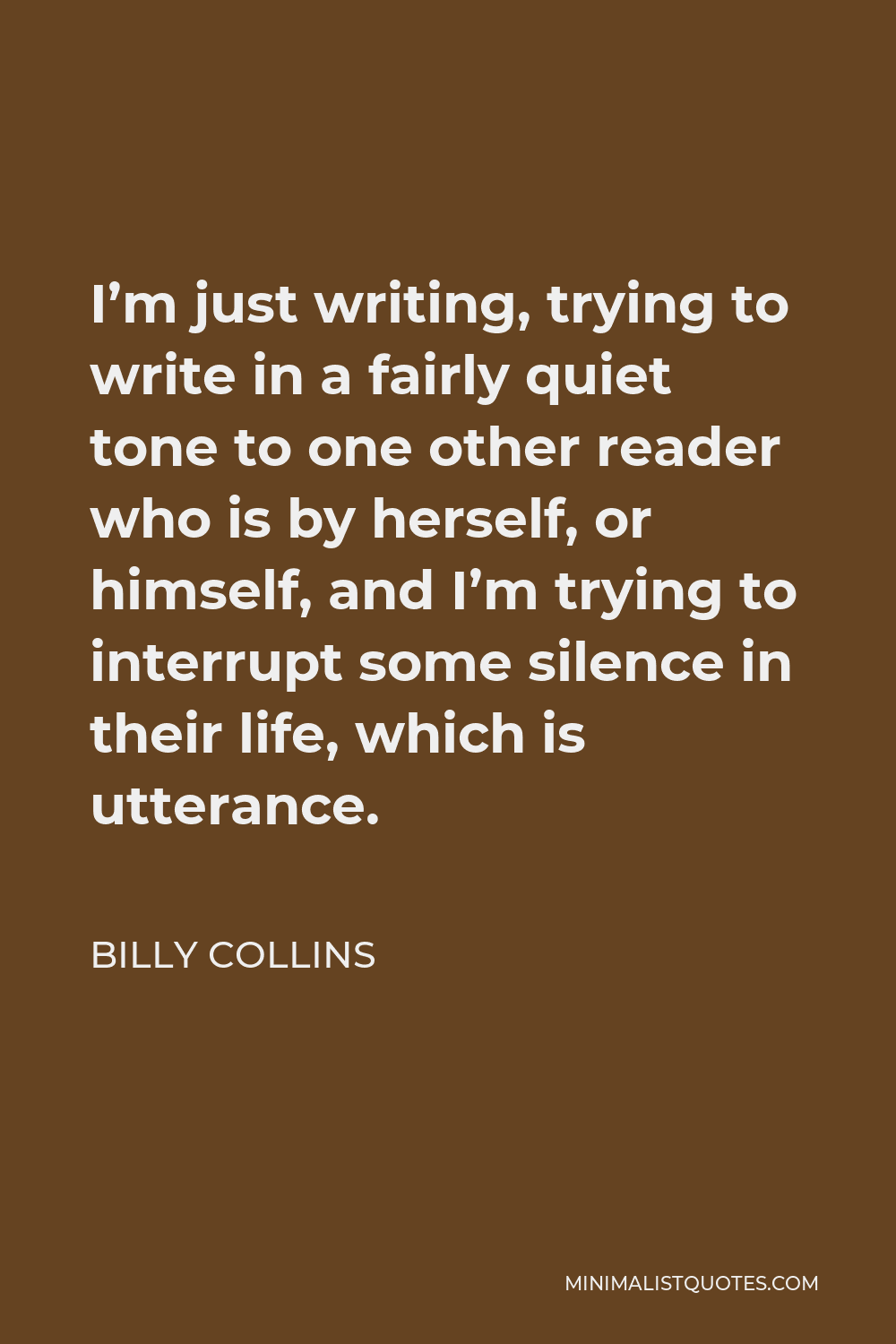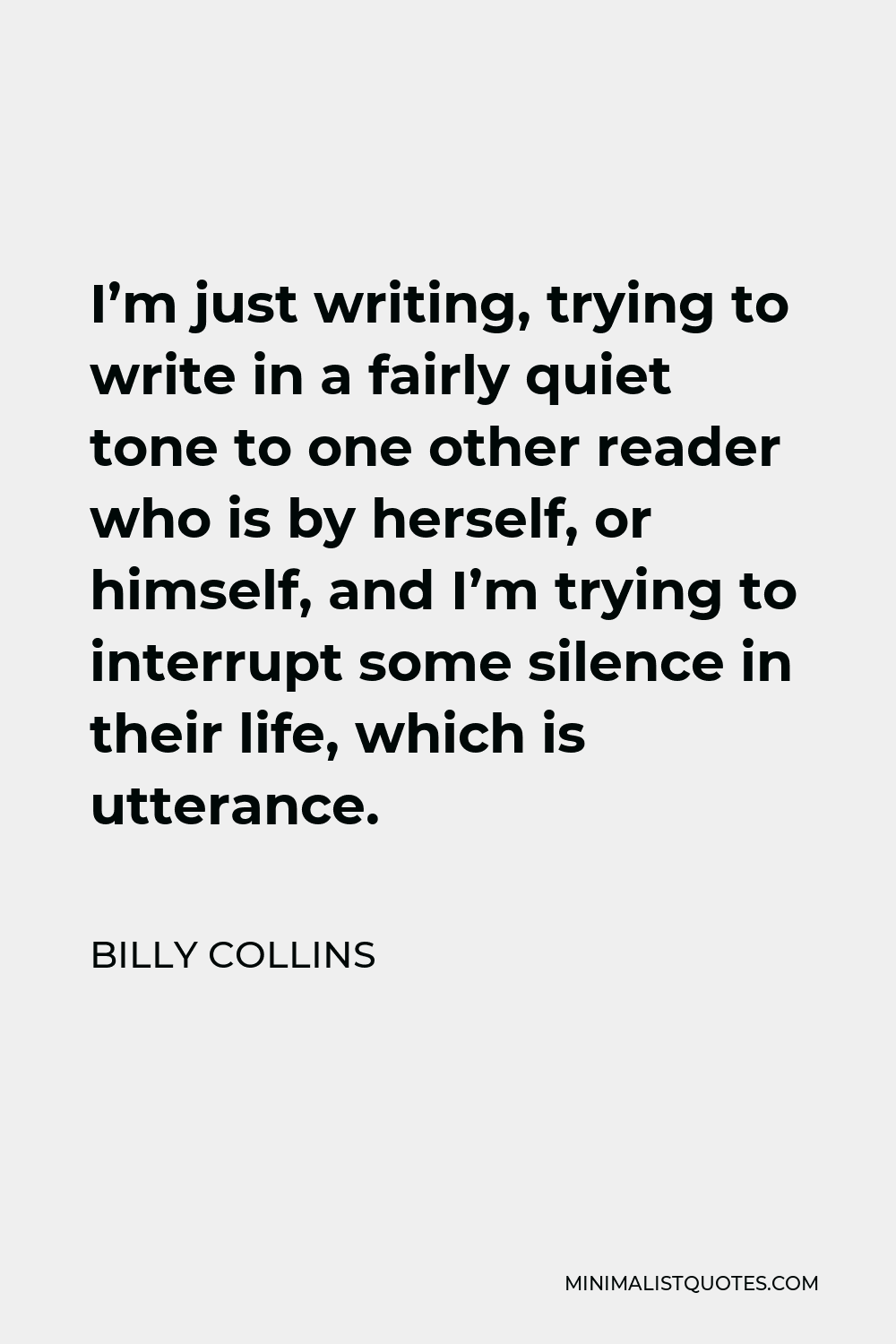I hope the poem, as it goes on, gets more complicated, a little more demanding, a little more ambiguous or speculative, so that we’re drifting away from the casual beginning of the poem into something a little more serious.
BILLY COLLINSI’m just writing, trying to write in a fairly quiet tone to one other reader who is by herself, or himself, and I’m trying to interrupt some silence in their life, which is utterance.
More Billy Collins Quotes
-





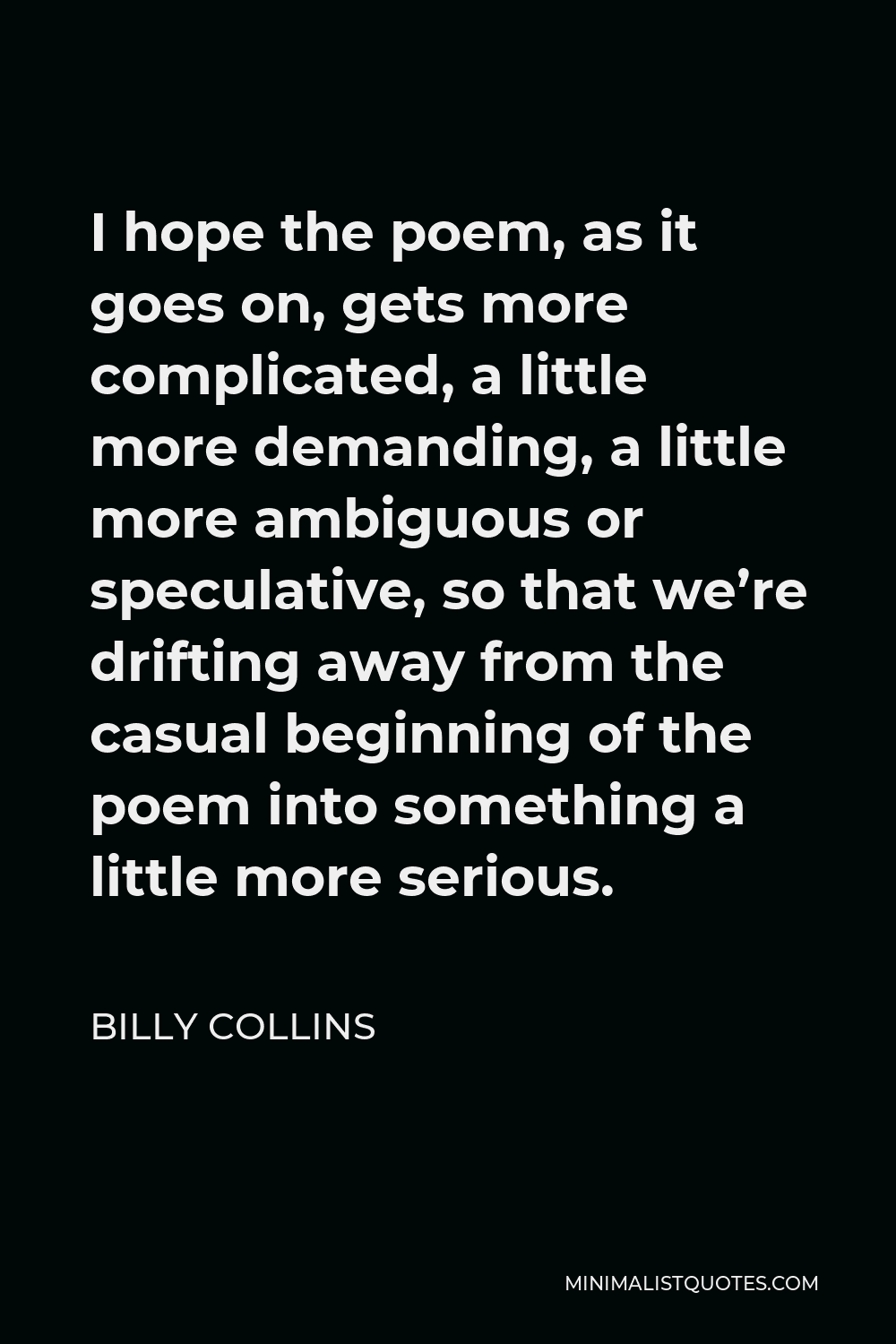
-





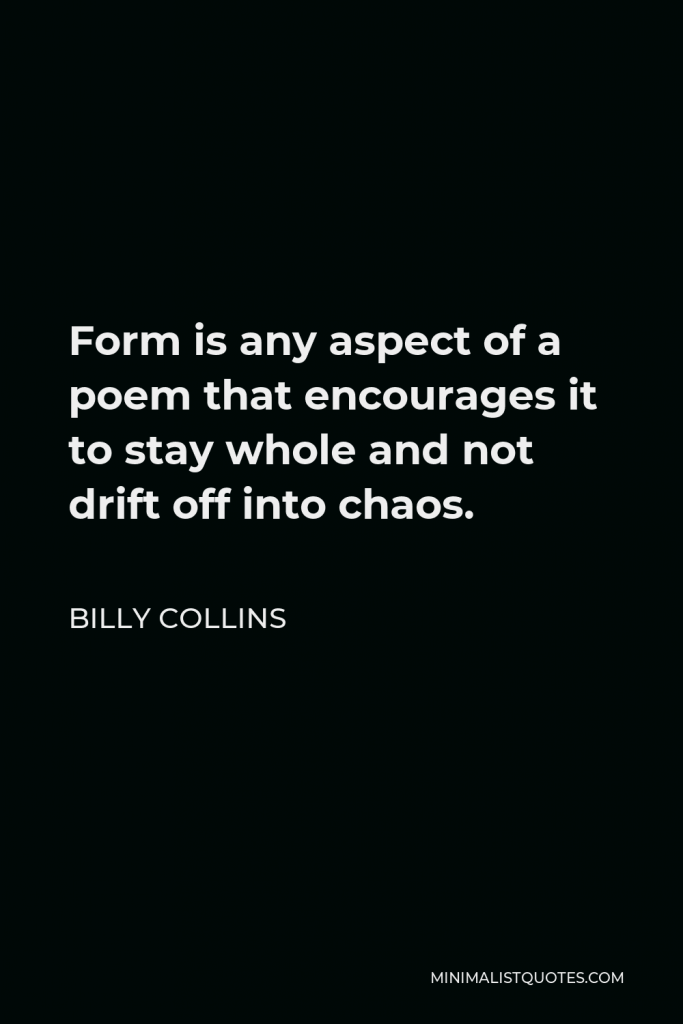

Form is any aspect of a poem that encourages it to stay whole and not drift off into chaos.
BILLY COLLINS -





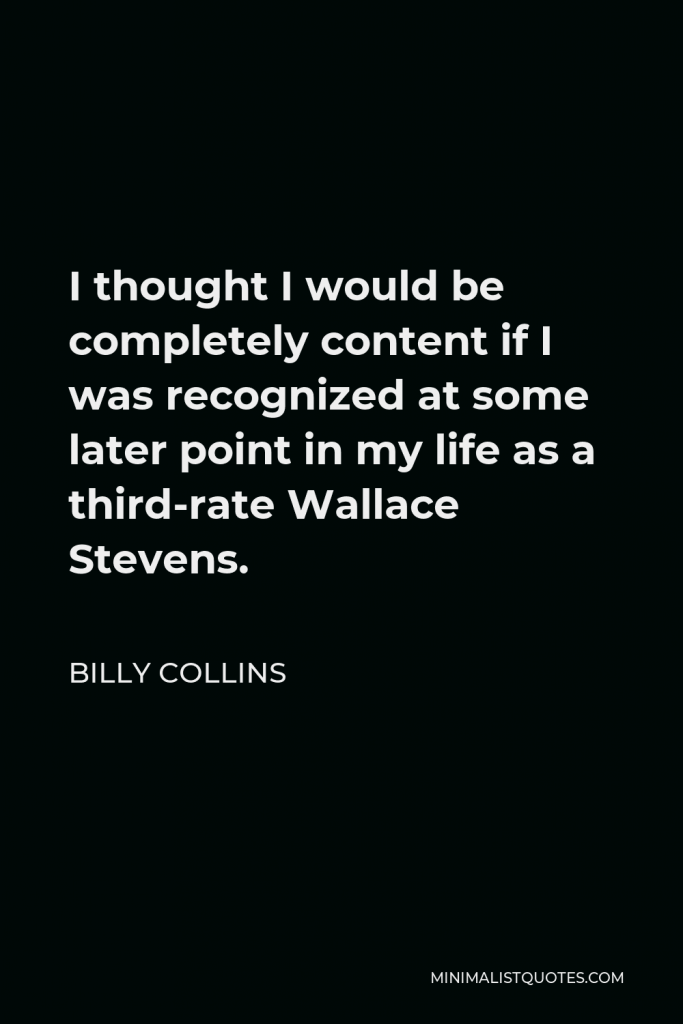

I thought I would be completely content if I was recognized at some later point in my life as a third-rate Wallace Stevens.
BILLY COLLINS -





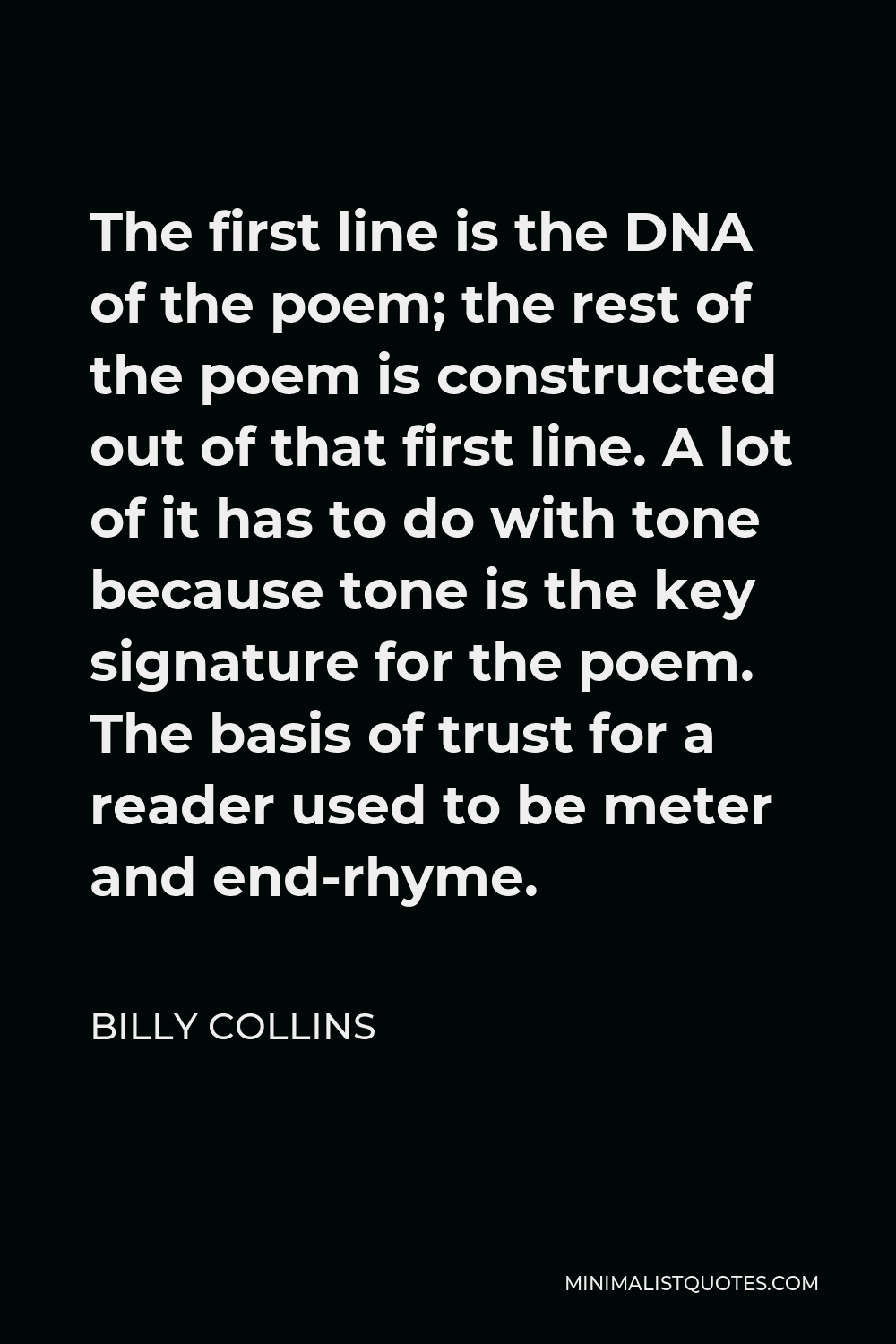
The first line is the DNA of the poem; the rest of the poem is constructed out of that first line. A lot of it has to do with tone because tone is the key signature for the poem. The basis of trust for a reader used to be meter and end-rhyme.
BILLY COLLINS -





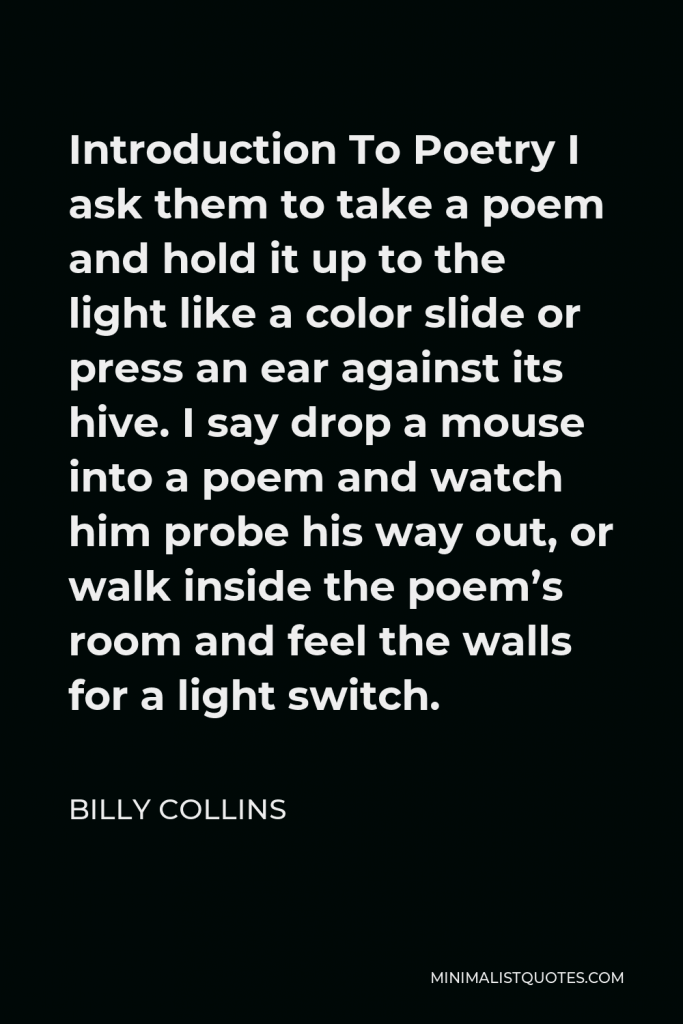

Introduction To Poetry I ask them to take a poem and hold it up to the light like a color slide or press an ear against its hive. I say drop a mouse into a poem and watch him probe his way out, or walk inside the poem’s room and feel the walls for a light switch.
BILLY COLLINS -





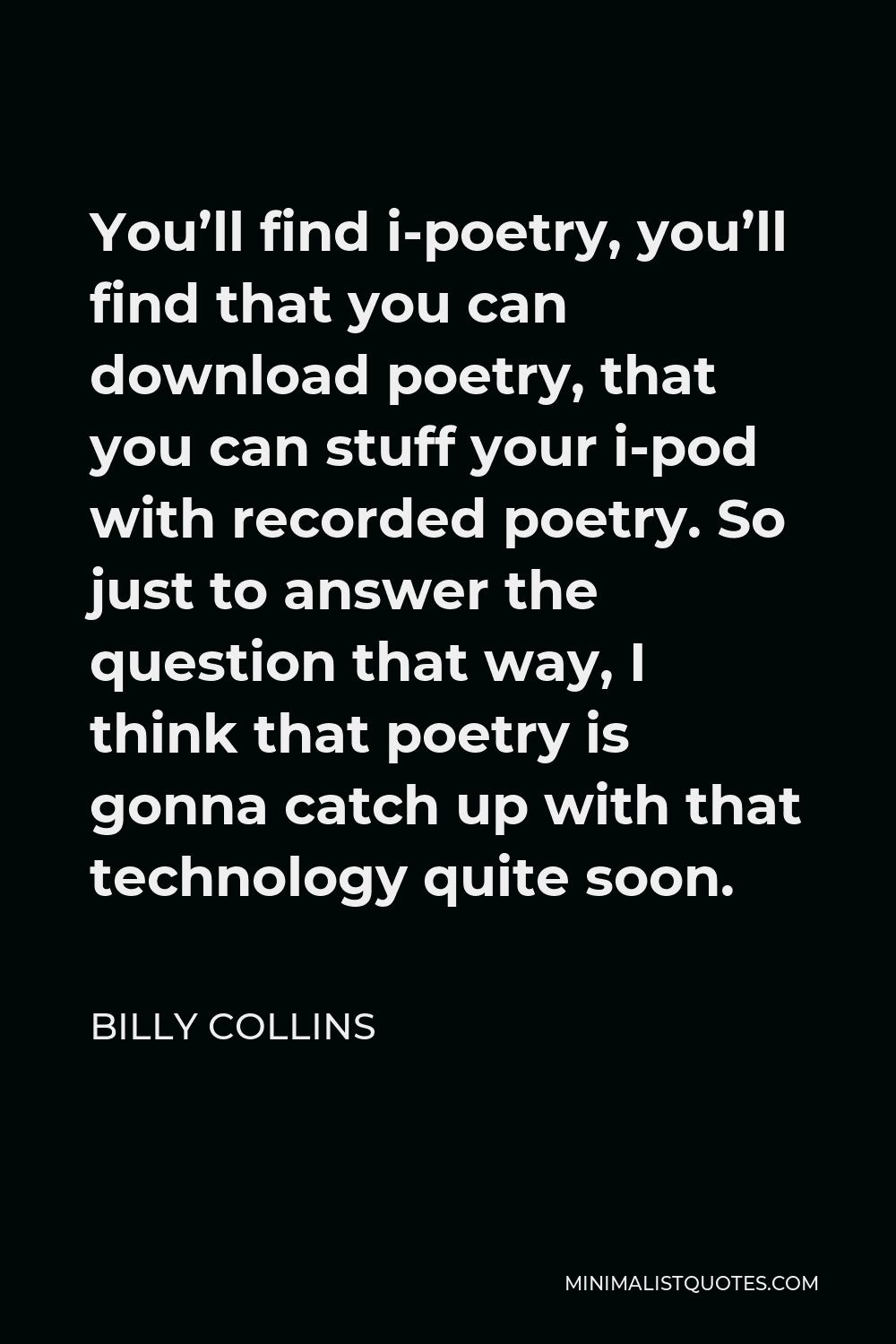
You’ll find i-poetry, you’ll find that you can download poetry, that you can stuff your i-pod with recorded poetry. So just to answer the question that way, I think that poetry is gonna catch up with that technology quite soon.
BILLY COLLINS -





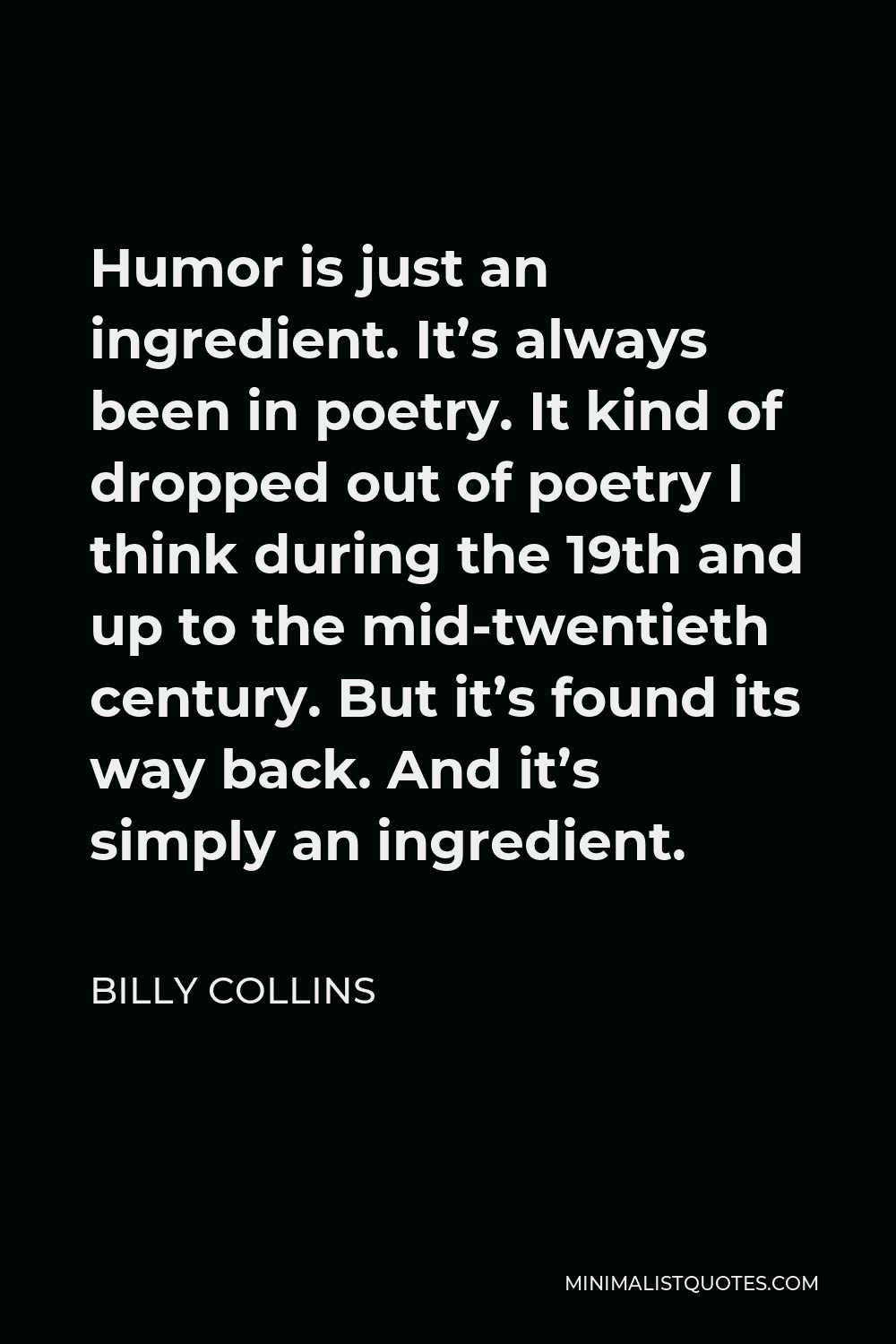
Humor is just an ingredient. It’s always been in poetry. It kind of dropped out of poetry I think during the 19th and up to the mid-twentieth century. But it’s found its way back. And it’s simply an ingredient.
BILLY COLLINS -






No one here likes a wet dog.
BILLY COLLINS -






Some difficulty is warranted and other difficulty I think is gratuitous. And I think I can tell the difference. There are certainly very difficult poets that I really enjoy reading.
BILLY COLLINS -





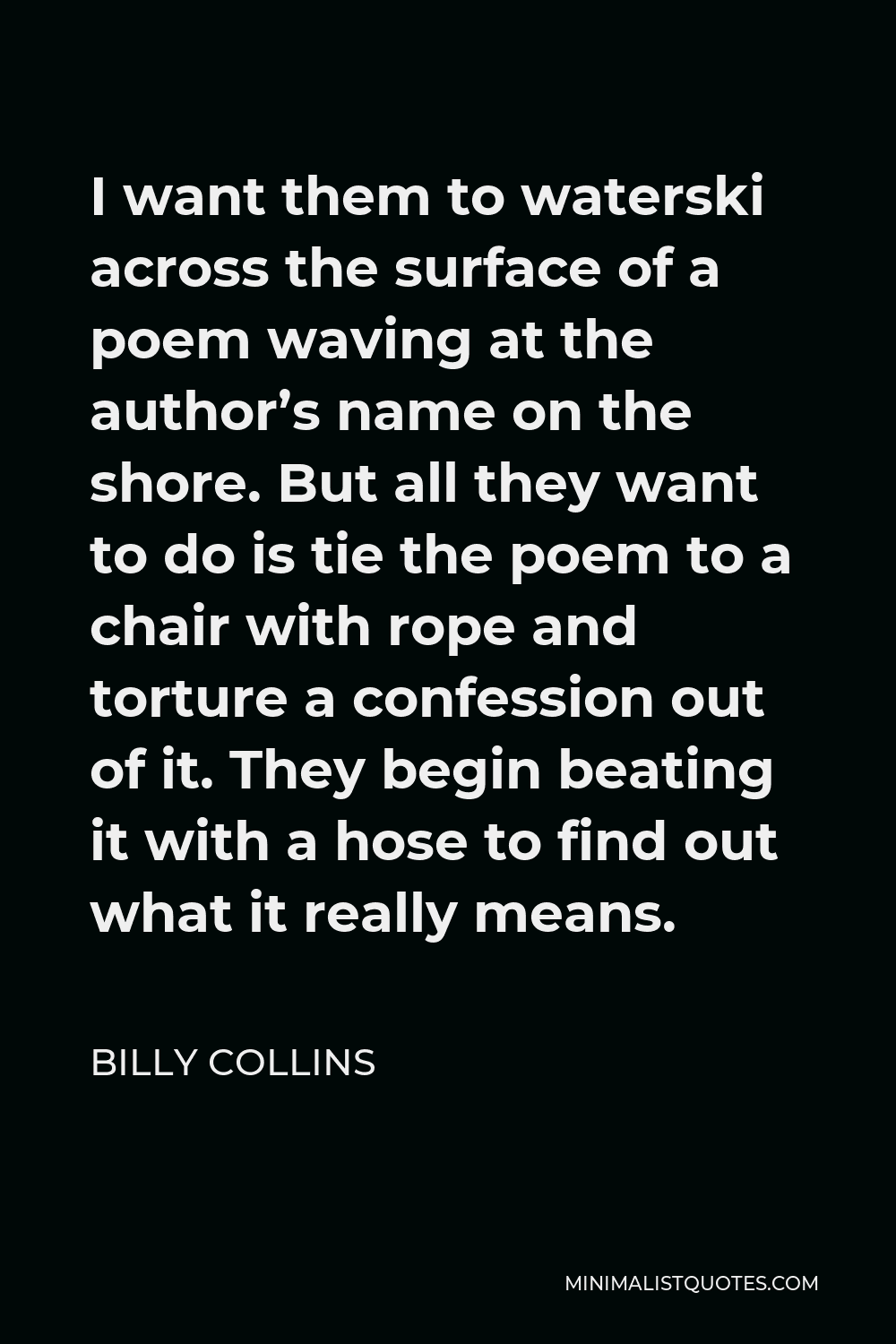
I want them to waterski across the surface of a poem waving at the author’s name on the shore. But all they want to do is tie the poem to a chair with rope and torture a confession out of it. They begin beating it with a hose to find out what it really means.
BILLY COLLINS -





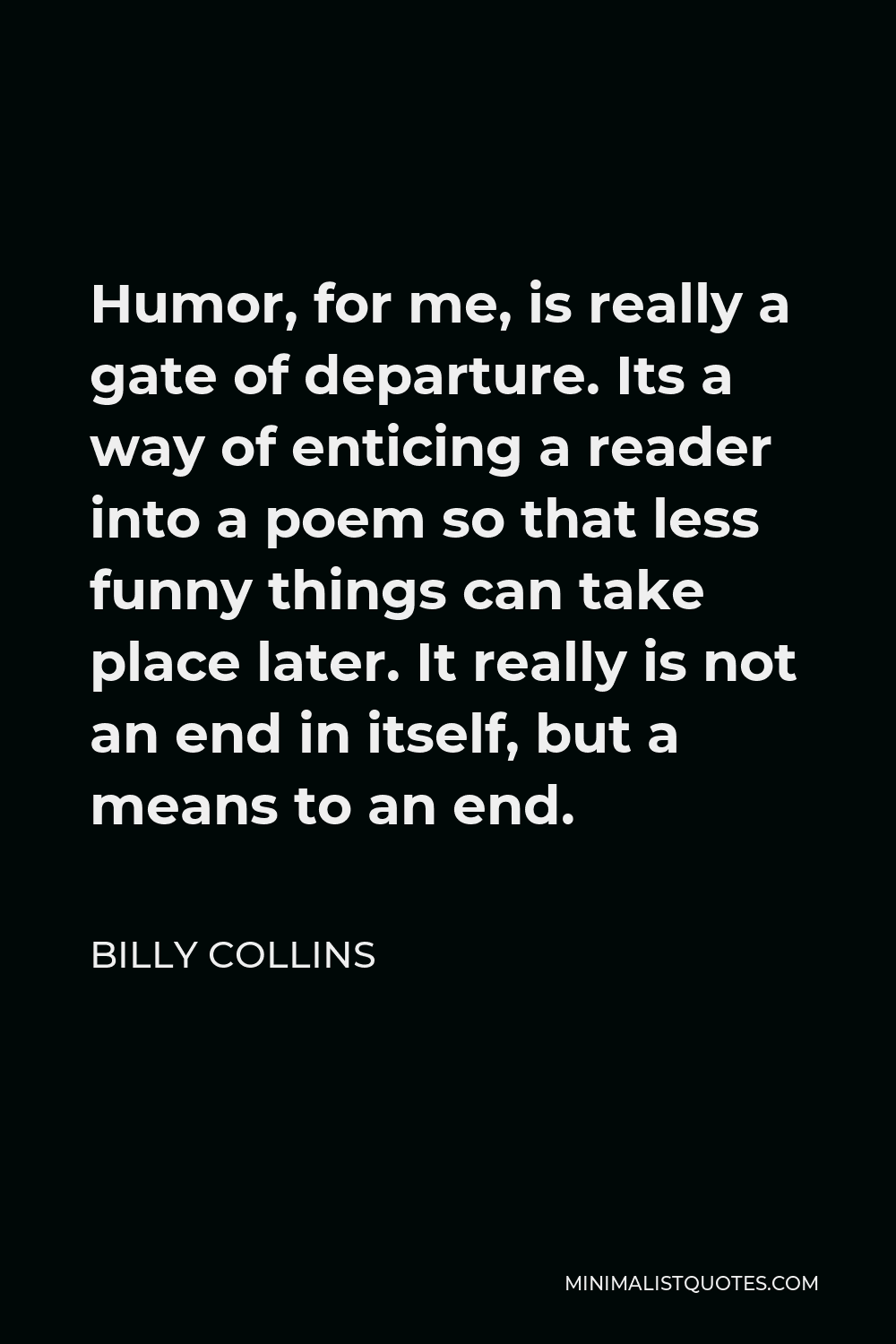
Humor, for me, is really a gate of departure. Its a way of enticing a reader into a poem so that less funny things can take place later. It really is not an end in itself, but a means to an end.
BILLY COLLINS -





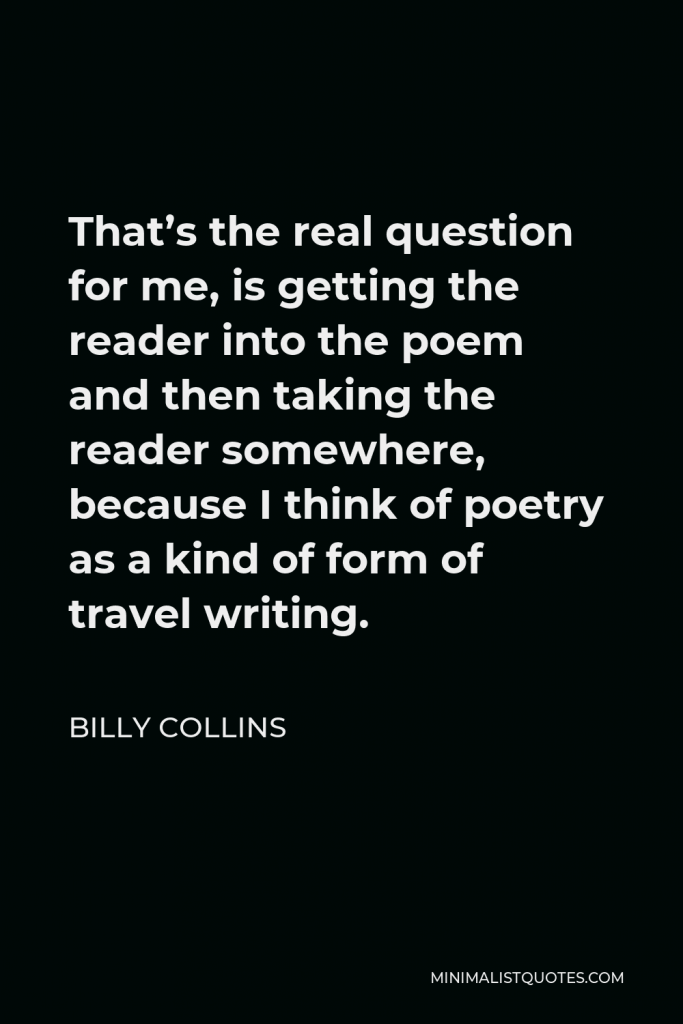

That’s the real question for me, is getting the reader into the poem and then taking the reader somewhere, because I think of poetry as a kind of form of travel writing.
BILLY COLLINS -





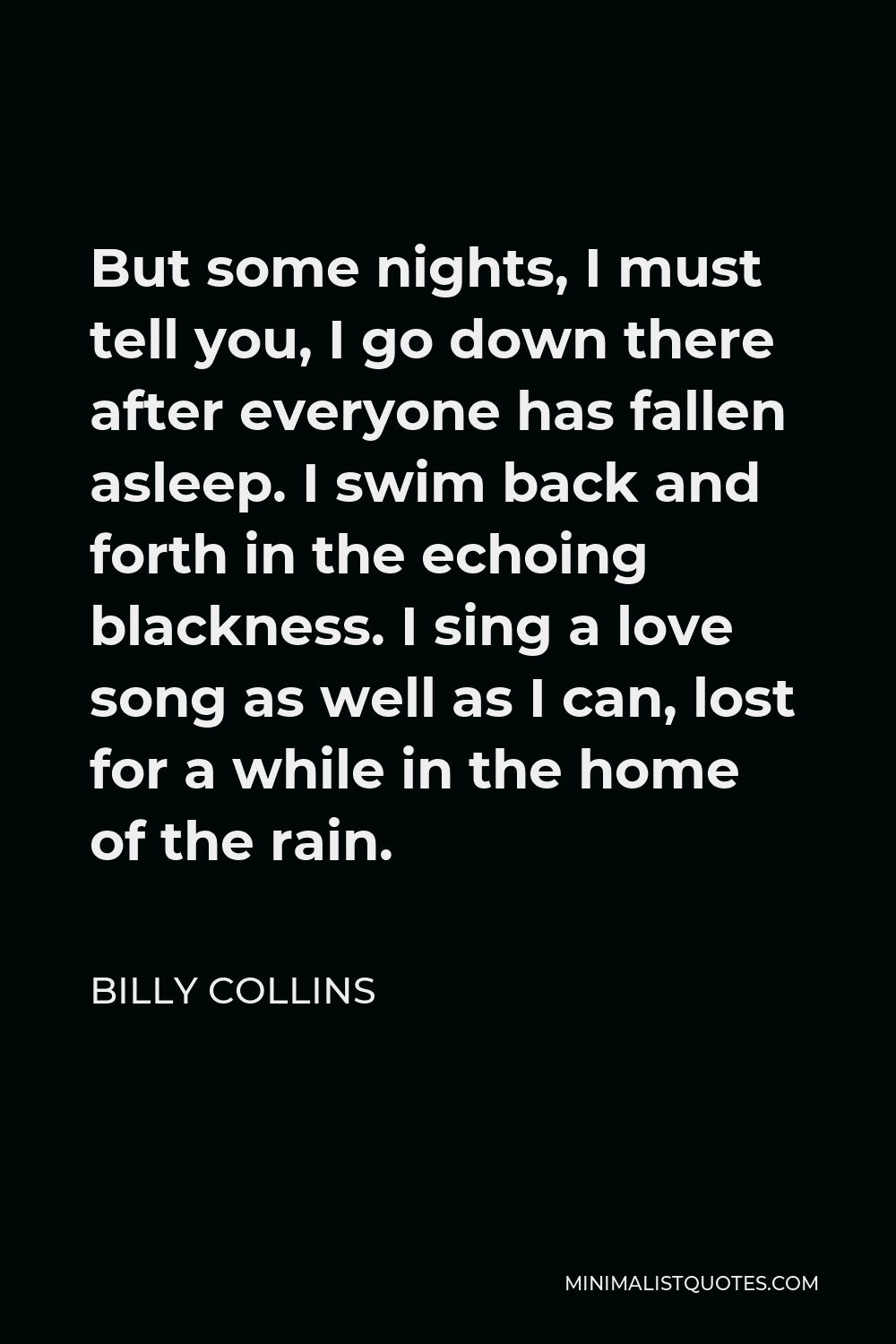
But some nights, I must tell you, I go down there after everyone has fallen asleep. I swim back and forth in the echoing blackness. I sing a love song as well as I can, lost for a while in the home of the rain.
BILLY COLLINS -





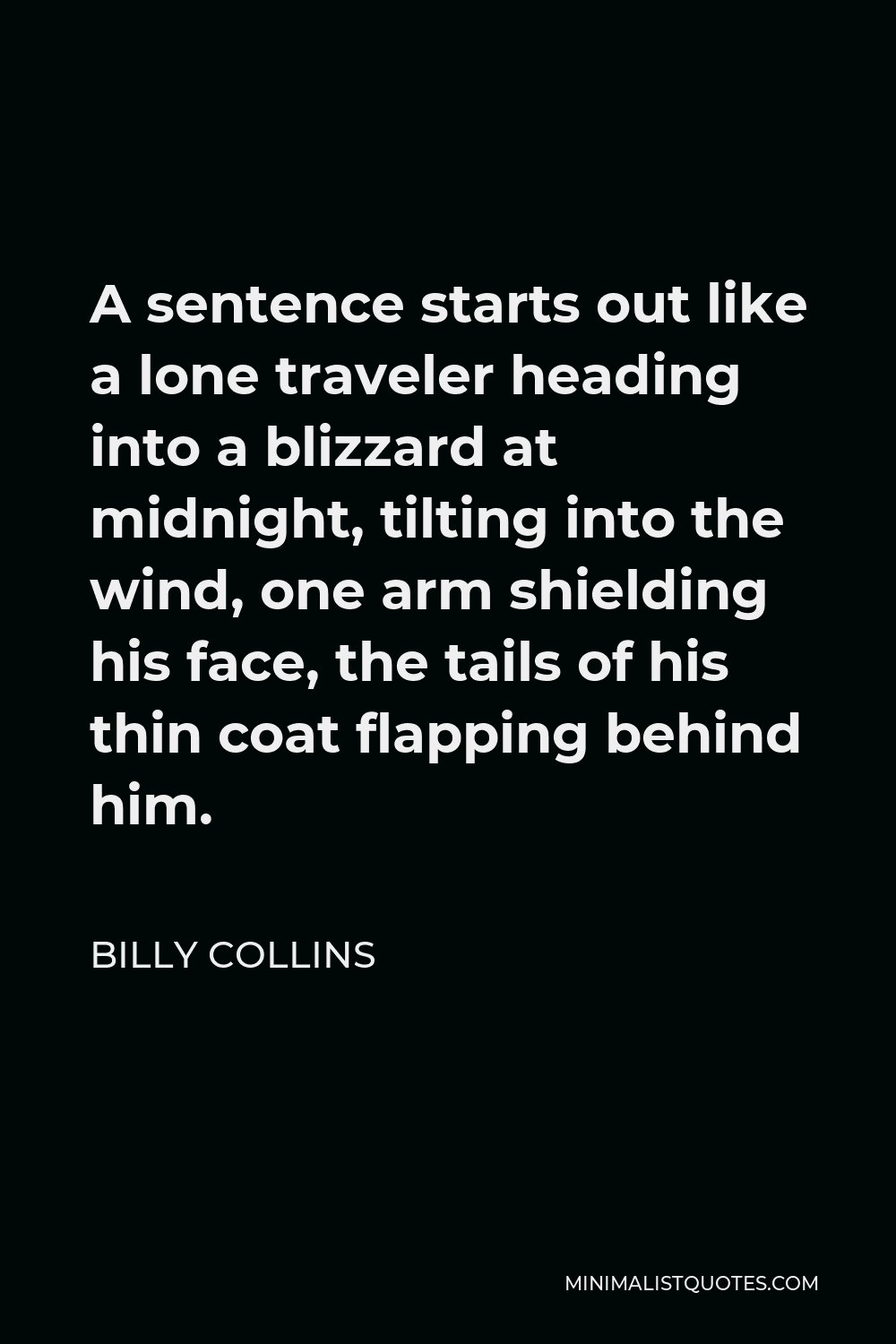
A sentence starts out like a lone traveler heading into a blizzard at midnight, tilting into the wind, one arm shielding his face, the tails of his thin coat flapping behind him.
BILLY COLLINS -





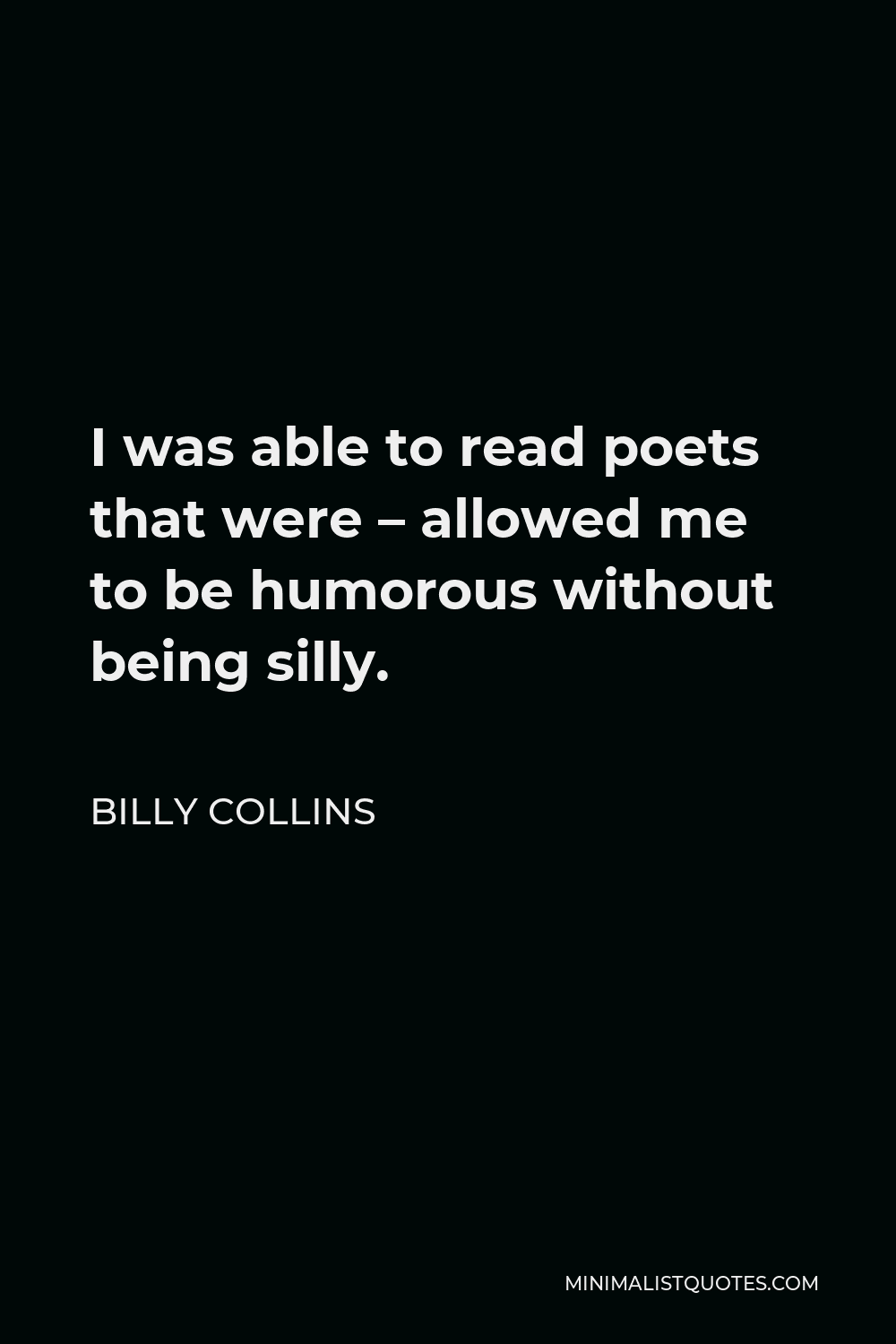
I was able to read poets that were – allowed me to be humorous without being silly.
BILLY COLLINS -





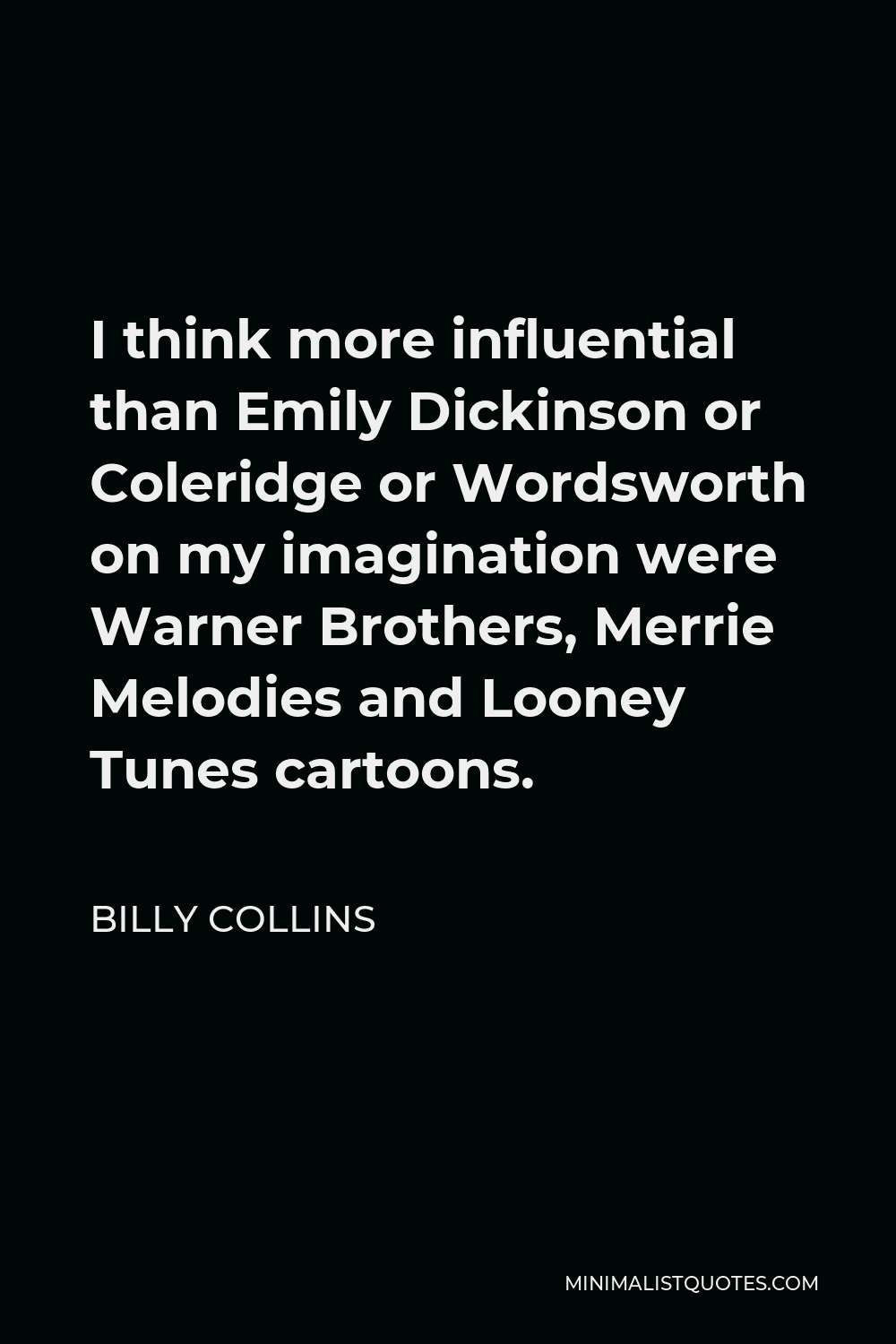
I think more influential than Emily Dickinson or Coleridge or Wordsworth on my imagination were Warner Brothers, Merrie Melodies and Looney Tunes cartoons.
BILLY COLLINS
